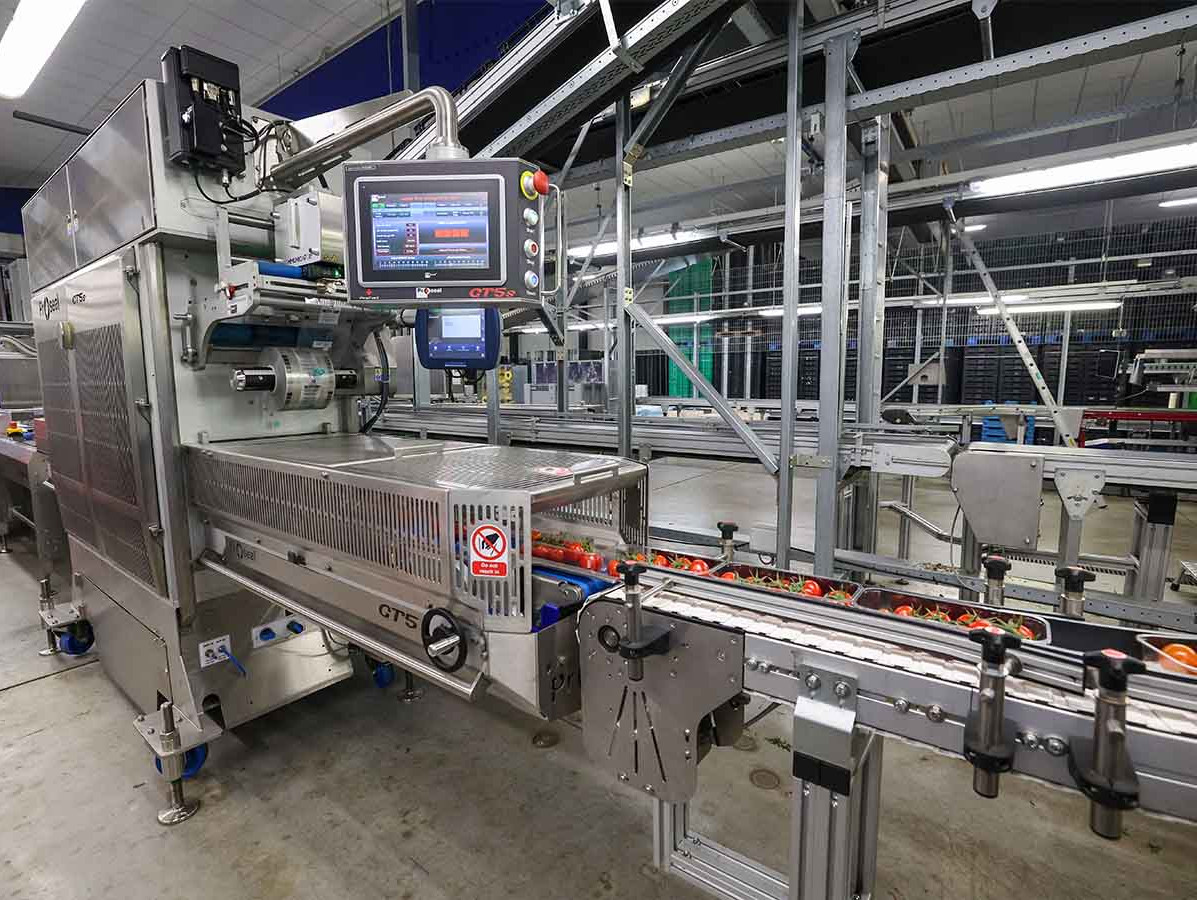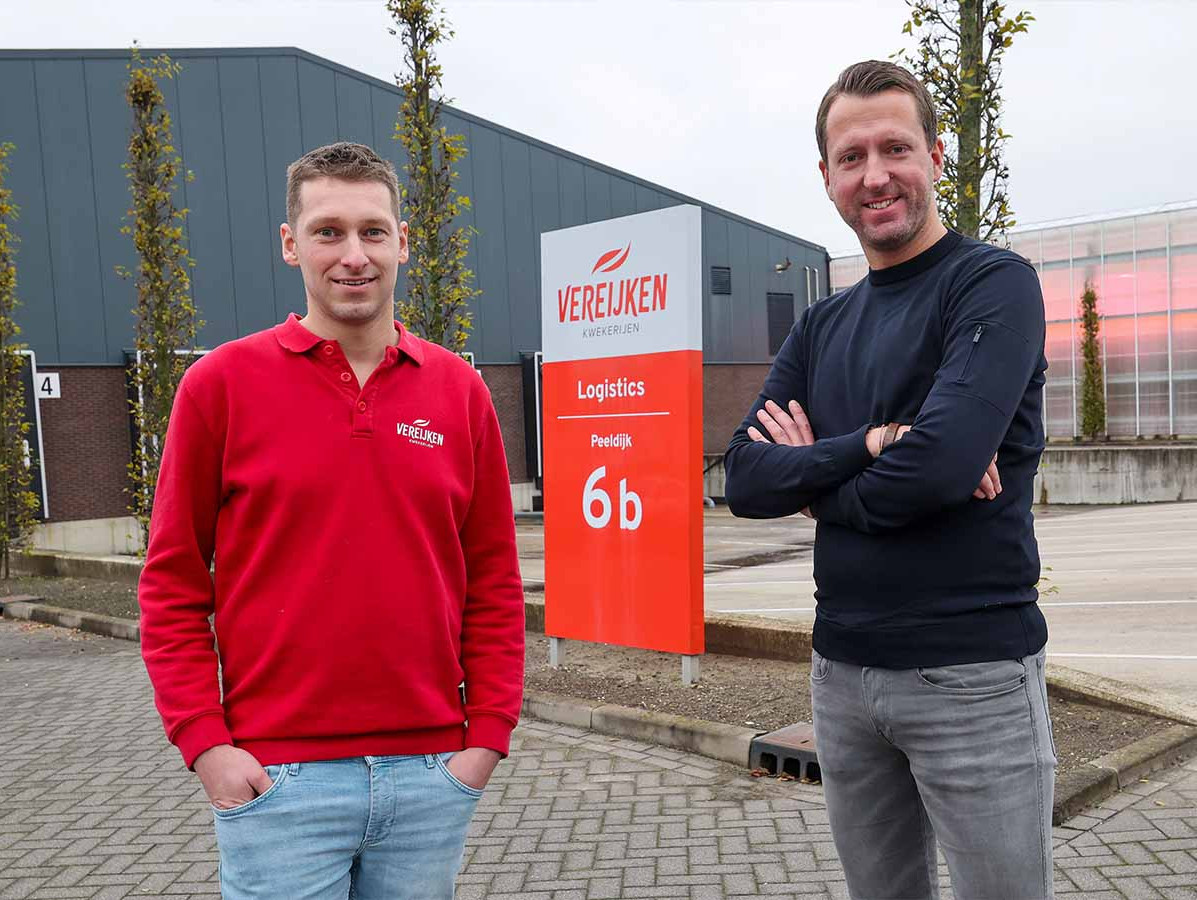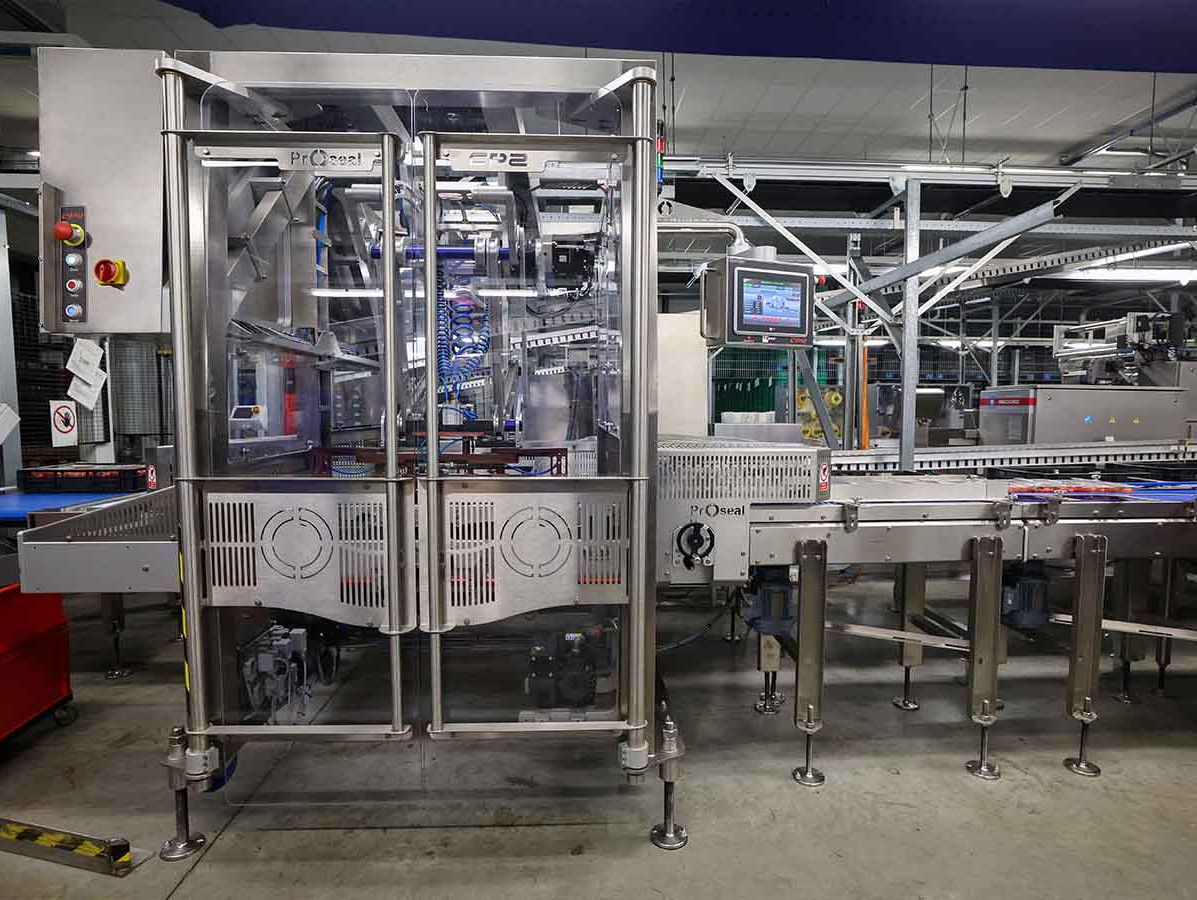
In the mid-90s, a modest greenhouse in Southeast Brabant formed the basis for the delicious Tasty Tom vine tomatoes by Vereijken. Over time, the small greenhouse has evolved into eight cultivation sites, with continuous advancements in packaging being a key focus.
In the food industry, few rules apply as consistently as "you ask, we deliver." So when a major client, in this case, a well-known retailer, requested a different type of packaging, you buy a new machine making that possible. For this reason, Vereijken Kwekerijen promptly installed a Proseal Traysealer and Casepacker in early 2023. “The customer wanted to shift from flowpack to topseal packaging for reasons such as enhanced product presentation, improved protection, and to improve sustainability goals,” Bart Vereijken says while standing in the packaging facility in Beek en Donk, Brabant. At the company, many millions of kilos of Tasty Tom vine tomatoes from its own greenhouses are checked and packed every year. His grandfather Theo, together with his brother Gerard, started growing strawberries and beans in the open ground in 1960. In the following years the first tomato greenhouses were built and in 1987 sons Hans, Gerard Jr and Eric joined the company. Together they developed the Tasty Tom vine tomatoes in 1995. In the decades that followed, the company grew gradually: from one to eventually eight locations today, spread over the regions of Southeast Brabant, North Limburg and the Westland.

Bart Vereijken (l) and Jasper Slaghekke
Vereijken would never have become as successful f they had not listened carefully to their customers. A clear vision, strictly adhered-to core values, as well as an intrinsic desire to stay ahead, characterize the company. This commitment is evident in their sustainability initiatives: “including LED lighting in greenhouses, solar panels, and our ongoing exploration of heat pump possibilities. And we are trying to reduce plastic use,” Vereijken said. “Regarding plastic reduction, the new packaging line proved beneficial. We now generate less plastic waste and trays made from recycled plastic (rPET) are used. The machine even allows sealing on a cardboard base, depending on customer preferences."
When the need for Topseal packaging arose, Vereijken engaged in discussions with two parties, including Sismatec. “In addition to a Traysealer, they could also supply a Casepacker – one of our wishes. Besides, we were dealing with two complex issues at this point, and Sismatec was able to deal with them," Vereijken says. Jasper Slaghekke, account manager at Sismatec, elaborates on the challenges faced: "The first issue was automated supply of customer crates to the casepacker; quite a logistical challenge to get the right crates to the right place. In addition the retailer had a specific packing pattern for crates; five side by side and two lengthwise. Our standard solution didn't suffice." Fortunately, Sismatec rose to the occasion, impressing Vereijken: "They truly collaborated, demonstrating their experience with complex challenges."

One of the benefits of both machines is their user-friendly nature. Vereijken notes, "Our staff now only have to be present to weigh the filled trays. The Traysealer and Casepacker handle the rest, placing them correctly in customer crates. With the new line, we save at least one manpower per shift." However, Vereijken emphasizes the importance of maintaining flexibility despite technological advancements. Nevertheless, the next Proseal top sealing machine has already been ordered at Vereijken: “It performs exceptionally well, and the collaboration has been excellent." Before the buy, they visited a food producer who already had the traysealer in place. “We could ask questions about how the machine works in practice: how do you keep it clean, what happens in case of breakdowns? In short: issues that occur in the field.” Slaghekke also praises the cooperation: “The great thing is, if something doesn’t go as planned, we receive feedback, which is incredibly valuable. Because we are able to improve our machines and service. After all, we want to keep developing as well."
www.vereijkenkwekerijen.nl
www.sismatec.nl
Photos: ©Bert Jansen Fotopersburo
Source: Vakblad Voedingsindustrie 2024